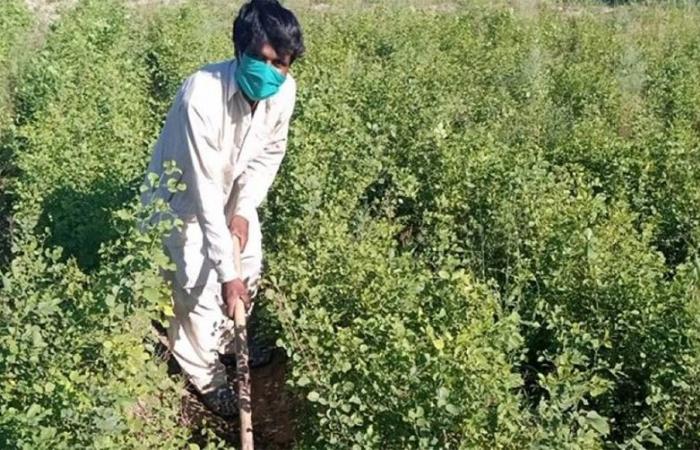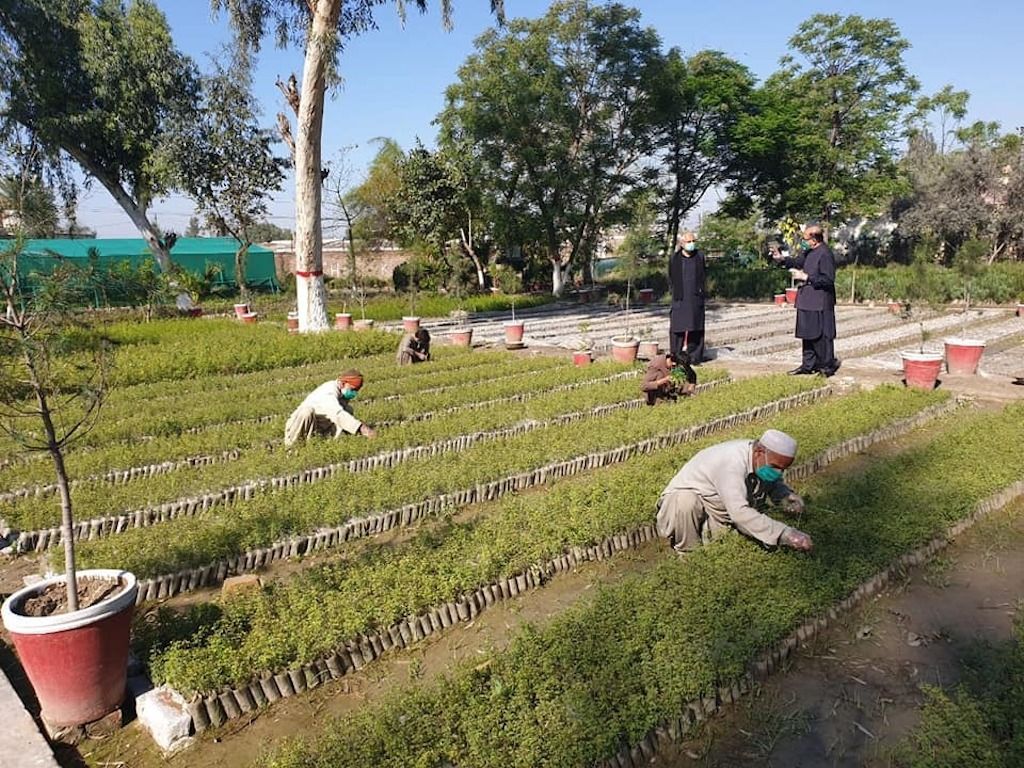Pakistan, a country with a population of 220 million, has been less hit by the coronavirus pandemic than other countries and fears more the negative impacts of climate change. To keep laid off workers in work, Pakistan restarted a reforestation programme during the crisis.
According to the latest figures from Johns Hopkins Coronavirus Resources Center (15 May), Pakistan had 37,218 confirmed cases and 803 deaths. The fatality rate per 100,000 inhabitants is only around 0.36 %. But the lockdown restrictions that have been force since late March and only recently have started to be lifted have led to wide-spread unemployment.
A recent assessment by the Pakistan Institute of Development Economics found that, due to the lockdown, up to 19 million people could be laid off, almost 70% of them in the Punjab province.
When construction worker Abdul Rahman lost his job because of the lockdown, his choices looked stark: resort to begging on the streets or let his family go hungry. But the government gave him a better option: Join tens of thousands of other out-of-work laborers in planting billions of trees across the country to deal with climate change threats.
Planting saplings is part of the country’s 10 Billion Tree Tsunami program and was launched in 2018 to counter the rising temperatures, flooding, droughts and other extreme weather in the country that scientists link to climate change.
As the pandemic struck Pakistan, the tree campaign initially was halted as part of social distancing orders put in place to slow the spread of the virus. But earlier this month, prime minister Imran Khan granted an exemption to allow the forestry agency to restart the program and create more than 63,600 jobs, according to government officials.
“Due to coronavirus, all the cities have shut down and there is no work. Most of us daily wagers couldn’t earn a living,” Rahman, a resident of Rawalpindi district in Punjab province, told the Thomson Reuters Foundation, a charity organisation founded by Thomson Reuters, the global news and information services company.
He now makes 500 rupees ($3) per day planting trees — about half of what he might have made on a good day, but enough to get by.
The Global Climate Risk Index 2020, issued by think tank Germanwatch, ranked Pakistan fifth, after Puerto Rico, Myanmar, Haiti and the Philippines, on a list of countries most affected by global warming over the last two decades — even though Pakistan contributes only a fraction of global greenhouse gases.
While much of the country is still observing stay-at-home orders, local police and district authorities have been told that trucks carrying trees should be allowed to travel and villagers are permitted to leave their homes to work with the project.
Abdul Muqeet Khan, chief conservator of forests for Rawalpindi district, says that the planting project is in “full swing.” Much of the work is happening on 15,000 acres (6,000 hectares) of land near the capital Islamabad, he said, as well as on other tracts of state-owned forest land around the country.
This year the program is employing triple the number of workers it did in its first year, said Malik Amin Aslam, climate change adviser to the prime minister. Many of the new jobs are being created in rural areas, he said, with a focus on hiring women and unemployed daily workers — mainly young people — who were migrating home from locked-down cities.

With face mask on, a labourer working in the plantation in push by Pakistan to provide jobs to those who could not find work due to lockdown amid the COVID-19 Pandemic.
The work, which pays between 500 rupees and 800 rupees per day, includes setting up nurseries, planting saplings, and serving as forest protection guards or forest firefighters, he said. All the workers have been told to wear masks and maintain the mandated two meters of social distance between them, he added.
According to Germanwatch, Pakistan reported more than 150 extreme weather events between 1999 and 2018 — from floods to heat waves — with total losses of $3.8 billion. Environmentalists have long pushed reforestation as a way to help, saying forests help prevent flooding, stabilize rainfall, provide cool spaces, absorb heat-trapping carbon dioxide emissions and protect biodiversity.
According to green group WWF, Pakistan is a “forest poor” country where trees cover less than 6% of the total area. Every year thousands of hectares of forest are destroyed, mainly as a result of unsustainable logging and clearing land for small-scale farming, the group said on its website.
With 7.5 billion rupees ($46 million) in funding, the 10 Billion Trees project aims to scale up the success of an earlier Billion Tree Tsunami in Pakistan’s Khyber Pakhtunkhwa province, where the government has been planting trees since 2014.
About 30 million indigenous saplings have been planted in Punjab since the start of the 10 Billion Tree Tsunami — including mulberry, acacia and moringa — said Shahid Rashid Awan, project director for Punjab province. This year, the project hopes to hit 50 million trees, he said.
Planting season usually ends in May, Awan noted, but program organizers plan to extend the initiative to the end of June, to keep workers employed for longer. “We can absorb all the unemployed laborers and workers who have fled the cities and returned to their villages in the past few weeks,” he said.
Rab Nawaz, of WWF-Pakistan, said the government’s move is “a very good idea to create green jobs and get people employed.” But he cautioned that planting trees is just one tool in the fight against climate change, saying there also needed to be investment in improving the ability of farmers and city dwellers to adapt to the effects of a hotter planet.
For Aslam, the green jobs initiative is a way to help Pakistan’s workers recover from the coronavirus crisis with dignity and avoiding handouts. “This has taught us the valuable lesson that when you invest in nature it not only pays you back, but also rescues you in a stressed economic situation,” he said.
The Brussels Times

